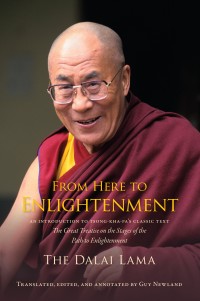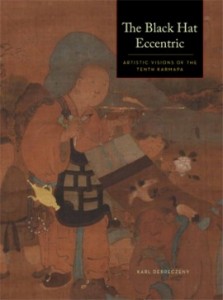- Home
- FPMT Homepage
Foundation for the Preservation of the Mahayana Tradition
The FPMT is an organization devoted to preserving and spreading Mahayana Buddhism worldwide by creating opportunities to listen, reflect, meditate, practice and actualize the unmistaken teachings of the Buddha and based on that experience spreading the Dharma to sentient beings. We provide integrated education through which people’s minds and hearts can be transformed into their highest potential for the benefit of others, inspired by an attitude of universal responsibility and service. We are committed to creating harmonious environments and helping all beings develop their full potential of infinite wisdom and compassion. Our organization is based on the Buddhist tradition of Lama Tsongkhapa of Tibet as taught to us by our founders Lama Thubten Yeshe and Lama Thubten Zopa Rinpoche.
- Willkommen
Die Stiftung zur Erhaltung der Mahayana Tradition (FPMT) ist eine Organisation, die sich weltweit für die Erhaltung und Verbreitung des Mahayana-Buddhismus einsetzt, indem sie Möglichkeiten schafft, den makellosen Lehren des Buddha zuzuhören, über sie zur reflektieren und zu meditieren und auf der Grundlage dieser Erfahrung das Dharma unter den Lebewesen zu verbreiten.
Wir bieten integrierte Schulungswege an, durch denen der Geist und das Herz der Menschen in ihr höchstes Potential verwandelt werden zum Wohl der anderen – inspiriert durch eine Haltung der universellen Verantwortung und dem Wunsch zu dienen. Wir haben uns verpflichtet, harmonische Umgebungen zu schaffen und allen Wesen zu helfen, ihr volles Potenzial unendlicher Weisheit und grenzenlosen Mitgefühls zu verwirklichen.
Unsere Organisation basiert auf der buddhistischen Tradition von Lama Tsongkhapa von Tibet, so wie sie uns von unseren Gründern Lama Thubten Yeshe und Lama Thubten Zopa Rinpoche gelehrt wird.
- Bienvenidos
La Fundación para la preservación de la tradición Mahayana (FPMT) es una organización que se dedica a preservar y difundir el budismo Mahayana en todo el mundo, creando oportunidades para escuchar, reflexionar, meditar, practicar y actualizar las enseñanzas inconfundibles de Buda y en base a esa experiencia difundir el Dharma a los seres.
Proporcionamos una educación integrada a través de la cual las mentes y los corazones de las personas se pueden transformar en su mayor potencial para el beneficio de los demás, inspirados por una actitud de responsabilidad y servicio universales. Estamos comprometidos a crear ambientes armoniosos y ayudar a todos los seres a desarrollar todo su potencial de infinita sabiduría y compasión.
Nuestra organización se basa en la tradición budista de Lama Tsongkhapa del Tíbet como nos lo enseñaron nuestros fundadores Lama Thubten Yeshe y Lama Zopa Rinpoche.
A continuación puede ver una lista de los centros y sus páginas web en su lengua preferida.
- Bienvenue
L’organisation de la FPMT a pour vocation la préservation et la diffusion du bouddhisme du mahayana dans le monde entier. Elle offre l’opportunité d’écouter, de réfléchir, de méditer, de pratiquer et de réaliser les enseignements excellents du Bouddha, pour ensuite transmettre le Dharma à tous les êtres. Nous proposons une formation intégrée grâce à laquelle le cœur et l’esprit de chacun peuvent accomplir leur potentiel le plus élevé pour le bien d’autrui, inspirés par le sens du service et une responsabilité universelle. Nous nous engageons à créer un environnement harmonieux et à aider tous les êtres à épanouir leur potentiel illimité de compassion et de sagesse. Notre organisation s’appuie sur la tradition guéloukpa de Lama Tsongkhapa du Tibet, telle qu’elle a été enseignée par nos fondateurs Lama Thoubtèn Yéshé et Lama Zopa Rinpoché.
Visitez le site de notre Editions Mahayana pour les traductions, conseils et nouvelles du Bureau international en français.
Voici une liste de centres et de leurs sites dans votre langue préférée
- Benvenuto
L’FPMT è un organizzazione il cui scopo è preservare e diffondere il Buddhismo Mahayana nel mondo, creando occasioni di ascolto, riflessione, meditazione e pratica dei perfetti insegnamenti del Buddha, al fine di attualizzare e diffondere il Dharma fra tutti gli esseri senzienti.
Offriamo un’educazione integrata, che può trasformare la mente e i cuori delle persone nel loro massimo potenziale, per il beneficio di tutti gli esseri, ispirati da un’attitudine di responsabilità universale e di servizio.
Il nostro obiettivo è quello di creare contesti armoniosi e aiutare tutti gli esseri a sviluppare in modo completo le proprie potenzialità di infinita saggezza e compassione.
La nostra organizzazione si basa sulla tradizione buddhista di Lama Tsongkhapa del Tibet, così come ci è stata insegnata dai nostri fondatori Lama Thubten Yeshe e Lama Zopa Rinpoche.
Di seguito potete trovare un elenco dei centri e dei loro siti nella lingua da voi prescelta.
- 欢迎 / 歡迎
简体中文
“护持大乘法脉基金会”( 英文简称:FPMT。全名:Foundation for the Preservation of the Mahayana Tradition) 是一个致力于护持和弘扬大乘佛法的国际佛教组织。我们提供听闻,思维,禅修,修行和实证佛陀无误教法的机会,以便让一切众生都能够享受佛法的指引和滋润。
我们全力创造和谐融洽的环境, 为人们提供解行并重的完整佛法教育,以便启发内在的环宇悲心及责任心,并开发内心所蕴藏的巨大潜能 — 无限的智慧与悲心 — 以便利益和服务一切有情。
FPMT的创办人是图腾耶喜喇嘛和喇嘛梭巴仁波切。我们所修习的是由两位上师所教导的,西藏喀巴大师的佛法传承。
繁體中文
護持大乘法脈基金會”( 英文簡稱:FPMT。全名:Found
ation for the Preservation of the Mahayana Tradition ) 是一個致力於護持和弘揚大乘佛法的國際佛教組織。我們提供聽聞, 思維,禪修,修行和實證佛陀無誤教法的機會,以便讓一切眾生都能 夠享受佛法的指引和滋潤。 我們全力創造和諧融洽的環境,
為人們提供解行並重的完整佛法教育,以便啟發內在的環宇悲心及責 任心,並開發內心所蘊藏的巨大潛能 — 無限的智慧與悲心 – – 以便利益和服務一切有情。 FPMT的創辦人是圖騰耶喜喇嘛和喇嘛梭巴仁波切。
我們所修習的是由兩位上師所教導的,西藏喀巴大師的佛法傳承。 察看道场信息:
- FPMT Homepage
- News/Media
-
- Study & Practice
-
-
- About FPMT Education Services
- Latest News
- Programs
- New to Buddhism?
- Buddhist Mind Science: Activating Your Potential
- Heart Advice for Death and Dying
- Discovering Buddhism
- Living in the Path
- Exploring Buddhism
- FPMT Basic Program
- FPMT Masters Program
- FPMT In-Depth Meditation Training
- Maitripa College
- Lotsawa Rinchen Zangpo Translator Program
- Universal Education for Compassion & Wisdom
- Online Learning Center
-
- Prayers & Practice Materials
- Overview of Prayers & Practices
- Full Catalogue of Prayers & Practice Materials
- Explore Popular Topics
- Benefiting Animals
- Chenrezig Resources
- Death & Dying Resources
- Lama Chopa (Guru Puja)
- Lama Zopa Rinpoche: Compendium of Precious Instructions
- Lama Zopa Rinpoche: Life Practice Advice
- Lama Zopa Rinpoche Practice Series
- Lamrim Resources
- Mantras
- Prayer Book Updates
- Purification Practices
- Sutras
- Thought Transformation (Lojong)
- Audio Materials
- Dharma Dates - Tibetan Calendar
- Translation Services
- Publishing Services
- Ways to Offer Support
- Prayers & Practice Materials
-
- Teachings and Advice
- Find Teachings and Advice
- Lama Zopa Rinpoche Advice Page
- Lama Zopa Rinpoche: Compendium of Precious Instructions
- Lama Zopa Rinpoche Video Teachings
- ༧སྐྱབས་རྗེ་བཟོད་པ་རིན་པོ་ཆེ་མཆོག་ནས་སྩལ་བའི་བཀའ་སློབ་བརྙན་འཕྲིན།
- Podcasts
- Lama Yeshe Wisdom Archive
- Buddhism FAQ
- Dharma for Young People
- Resources on Holy Objects
- Teachings and Advice
-
-
*If a menu item has a submenu clicking once will expand the menu clicking twice will open the page.
-
-
- Centers
-
- Teachers
-
- Projects
-
-
-
-
*If a menu item has a submenu clicking once will expand the menu clicking twice will open the page.
-
-
- FPMT
-
-
-
-
-
You are responsible for your own problems just as you’re responsible for your own liberation and enlightenment.
Lama Zopa Rinpoche
-
-
-
- Shop
-
-
-
The Foundation Store is FPMT’s online shop and features a vast selection of Buddhist study and practice materials written or recommended by our lineage gurus. These items include homestudy programs, prayers and practices in PDF or eBook format, materials for children, and other resources to support practitioners.
Items displayed in the shop are made available for Dharma practice and educational purposes, and never for the purpose of profiting from their sale. Please read FPMT Foundation Store Policy Regarding Dharma Items for more information.
-
-
Mandala
15
No Victim, No Perpratrator
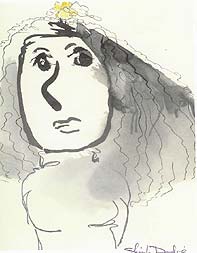
Art by Shirley Dodge
“I was sexually abused by a daycare worker the year before I started kindergarten. It was one of those situations that are often reported in newspapers, except this time no one was caught and there was no story. I forgot all about it until I was in my early thirties, yet it colored every aspect of my life, and when I started to remember the abuse, it ruled my life,” writes Ven. Gyalten Mindrol. “… Although I was fortunate to find a deeply gifted psychotherapist, who gave me a place to talk and didn’t overload me with theory and advice, it was the Dharma that helped me assimilate the abuse into my conscious life, and it was the abuse that radically deepened my understanding and practice of the Dharma, my faith in it, and my longing for it.”
From Mandala June-July 2006
- Tagged: dharma in the modern world, mandala, your community
- 0
12
Yangsi Rinpoche Answers, “Where Are All the Western Geshes?”
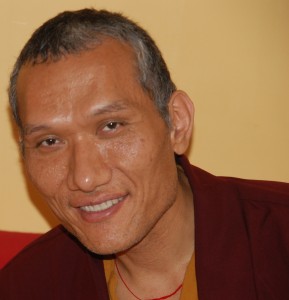
Yangsi Rinpoche, Institut Varja Yogini
“Two things are happening right now: one is that Western students have completed all the necessary training and have come out with the label of ‘qualified’ or ‘ready to teach.’ Then, there is the other side where, due to individual karmic relationships, the teacher just naturally builds up the necessary qualities, but is not trained in the traditional way. In terms of individual students, you can relate to someone as ‘this is my teacher, I see he/she as qualified,’ but as for society, at this moment, all the traditions are trying to standardize that status.
“For me, personally speaking, there are a lot of qualified Western teachers, ordained and non-ordained, but right now the West is a “crossed place”; even though some qualified teachers exist, there’s not this box where people can categorize who is qualified and who is not.”
Read more …
From Mandala December 2006 – January 2007
- Tagged: mandala, teachings and advice
- 0
11
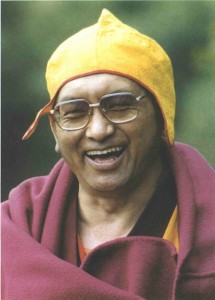
Photo by Bob Cayton
“It is extremely important to know how to live our daily life. We need to know what is spiritual practice and what is not spiritual, or what is Dharma and what is not Dharma. The benefit of understanding this, of having this wisdom, is unbelievable, is infinite.
“What we have to realize is that all of our activities throughout twenty-four hours – walking, sitting, sleeping, talking, doing our job – can become a cause for enlightenment, for liberation, for happiness in future lives; or for the lower realms. It all depends on our motivation.”
Read Lama Zopa Rinpoche’s complete teaching …
From Mandala March 2001
- Tagged: mandala, teachings and advice
- 0
8
Many Buddhist practitioners have encountered feelings of loneliness. According to Lama Zopa Rinpoche’s Online Advice Book, Rinpoche once heard a monk comment that he felt people didn’t want to be with him and were avoiding him. Rinpoche offered this advice:
That is no problem at all. It is good, because you waste so much of your time if people are interested in meeting you. Then, no meditation, no study, nothing, just blah, blah, blah, blah. That is why Milarepa achieved enlightenment in a brief lifetime during degenerate times. Why did he go to meditate in very high mountains? That is the whole point. He did it in order not to waste his life. … Buddha said that as long as one follows desire, one will never get satisfaction. Satisfaction, here, means peace of mind, but in a broader way it also means to understand that as long as one follows desire, there is no liberation and no enlightenment.
You can read the complete advice Rinpoche offered this monk at “Lama Zopa Rinpoche’s Online Advice Book” on the Lama Yeshe Wisdom Archive website.
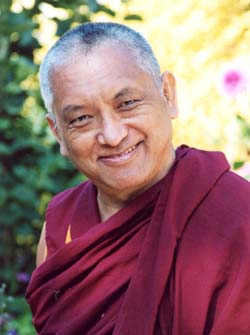
Lama Zopa Rinpoche. Photo by Ven. Roger Kunsang.
After the terrorist attacks in the United States in September 2001 and the beginning of war in the Middle East, Lama Zopa Rinpoche wrote an open letter to former U.S. President George W. Bush about the effectiveness of spiritual solutions for the crisis the world was facing.
“War is what ordinary people in the world regard as the solution,” Lama Zopa Rinpoche wrote. “The problem is that war, even if it is won, is like a medicine that has side effects. It may temporarily help the situation but afterwards there will be continual complications. Why? Because the people you defeat generate hatred towards you and in future generations they harm you back. In the natural law of actions, called karma in Sanskrit, the action of harming leaves an imprint on the mental continuum and that imprint is like a seed. When it ripens later, the person experiences the result of receiving harm from others.”
From Mandala March-May 2002.
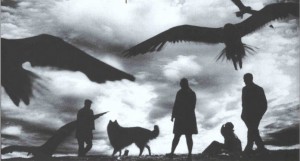
Photo by Jeff Gould
In Ultimate Healing, published by Wisdom Publications, Lama Zopa Rinpoche, spiritual director of the Foundation for the Preservation of the Mahayana Tradition (FPMT) suggests the cure for not only depression, but all forms of illness and disease: unqualified love in the form of compassion for all living beings – including oneself. Written with humility and kindness, Ultimate Healing is rich in wisdom and practical help for those in pain.
“Depression can be the result of a specific situation, in which case you can apply the relevant meditation to deal with those conditions; however, depression and feelings of hopelessness can also arise for no particular reason. When you are experiencing depression, you should prepare yourself each morning by making a strong determination not to allow the situation to upset you. [This] strengthens you and gives you courage. Also make a strong determination to transform your depression into happiness. During the day, when you start to feel depressed or upset, you should immediately remember the determination you made in the morning and not let the situation overwhelm you. No matter how bad the situation seems, and even if it is commonly regarded as a serious problem, you should not allow it to make your life dark and depressed.
“After making this determination, you then mentally prepare yourself for the day by thinking of the methods you will use when you start to feel depressed or upset. There are various special techniques for fighting depression …”
From Mandala March-May 2002
- Tagged: depression, lama zopa rinpoche, mandala, teachings and advice
- 0
FPMT News Around the World
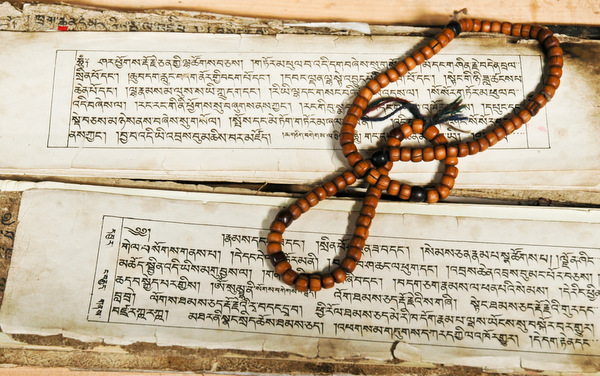
Image: Dreamstime
You may have noticed that FPMT Education Services’ has been doing a lot of great work, updating and organizing their webpages to help students find the materials and information they need to do practice and study Dharma. Now you can find the latest news from Education Services about new practices, booklets, study materials, education programs and trainings on their new “FPMT Education News” page. Even better, you can subscribe to the page and receive announcements directly in your email inbox.
With more than 160 centers, projects and services around the globe, there is always news on FPMT activities, teachers and events. Mandala hopes to share as many of these timely stories as possible. If you have news you would like to share, please let us know.
If you like what you read on Mandala, consider becoming a Friend of FPMT, which supports our work.
- Tagged: fpmt education, mandala
- 0
31
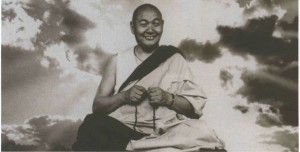
Photo by Robin Bath
Lama Yeshe’s talk in Berkeley, California, in the summer of 1983 was given at a time when the world was in a state of anxiety about the threat of nuclear war. How easily it translates to today when new fears have arisen. As Lama said, “First we create a situation; then we’re scared of it. … However, there’s no need for fear, worry or anxiety because, first of all, nuclear energy is a reality and secondly, our opinion of what’s happening is just that – an opinion. It’s not yet a reality; it’s simply a presumption.” This extract, edited by Nick Ribush of the Lama Yeshe Wisdom Archives, reflects Lama’s inimitable style.
Read more …
From Mandala March-May 2002
- Tagged: mandala, teachings and advice
- 0
30
Sexual Morality, Buddhist Style
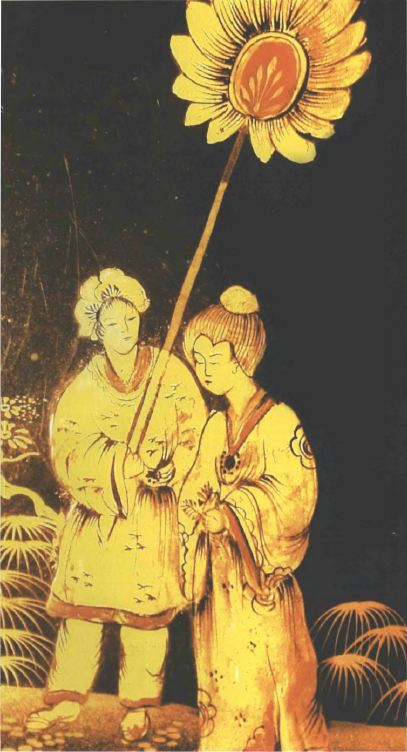
Photo by Sarah Keen
“There was a sense of shock in the large living room looking out onto the native Australian bush outside the windows. Kangur Khensur Rinpoche had been giving an impromptu after-dinner teaching to three married couples, and myself (his attendant), and had just said words to the effect that all ordinary sexual activity is non-virtuous…”
Read more on one monk’s thoughts about the process of growing up as a sexual being …
From Mandala March-May 2002
- Tagged: mandala, practicing dharma in daily life
- 0
28
Need Something to Read?
Every issue Mandala reviews new books spanning a wide variety of Buddhist topics. In this issue’s “Editor’s Choice” section we review His Holiness the Dalai Lama’s From Here to Enlightenment: An Introduction to Tsongkhapa’s Classic Text The Great Treatise on the Stages of the Path to Enlightenment and Ven. Thubten Chodron Don’t Believe Everything You Think: Living with Wisdom and compassion. We also take a look at Susan J. Stabile’s Growing in Love and Wisdom: Tibetan Buddhist Sources for Christian Meditation and Inner Peace – Global Impact: Tibetan Buddhism, Leadership, and Work, edited by Kathryn Goldman Schuyler and featuring a chapter by Lama Yeshe Wisdom Archive director Nick Ribush. You can read all the reviews exclusively in the online edition of Mandala January-March 2013.
24
Book Review: The Black Hat Eccentric
“The Tenth Karmapa, Chöying Dorjé (1604-1674), head of the Karma Kagyu school, was not a professional artist, but in Debreczeny’s words ‘painting and sculpture was his passion (65).’ Chöying Dorjé’s painting style was very different from ‘the mainstream Tibetan painting of his time (69),’ which was dominated by the Menri style from the mid-fifteenth century. Menri is known for its predominance of blue and green palette, strict iconography and iconometry [artistic conventions for the proportions of buddhas, deities and so forth], and a symmetrical composition crowded with details that fill the canvas. Chöying Dorjé was trained in part by his religious teacher, the Sixth Shamar, as well as a master painter of the Menri tradition, but seems to have developed most as an artist through the viewing and copying of Buddhist art encountered in his wide-ranging travels. Chöying Dorjé was especially interested in archaic styles and the art of Tibet’s neighbors, developing a highly personal idiom that incorporated features from what Tibetans called ‘Kashmir’ (northwest India), Nepal, and China and was unusually versatile in styles from the Tibetan Yarlung (7th – 8th century), Chinese Song and Yuan, and fifteenth century Tibetan master artists. He was especially fond of the Chinese theme of the Sixteen Arhats, and painted sets of the subject multiple times.”
From Mandala January-March 2013
- Tagged: dharma in the modern world, mandala
- 0
23
REJOICE! The Second Round of 108 Nyung Näs at Institut Vajra Yogini
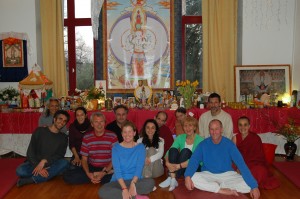
Participants in the 108 nyung näs at Institut Vajra Yogini, 2012
“Following up on the success of last year’s round of 108 nyung näs at Institut Vajra Yogini (IVY), the French center has begun a second round,” reports center director François Lecointre. “Six people intend to do the full 108 nyung näs that started at IVY on November 18, 2012. Rinpoche’s offer to sponsor up to 10 people willing to do 100 nyung näs has made it possible for them to commit for the whole seven months of intense practice.”
Read more …
From Mandala January-March 2013
- Home
- News/Media
- Study & Practice
- About FPMT Education Services
- Latest News
- Programs
- New to Buddhism?
- Buddhist Mind Science: Activating Your Potential
- Heart Advice for Death and Dying
- Discovering Buddhism
- Living in the Path
- Exploring Buddhism
- FPMT Basic Program
- FPMT Masters Program
- FPMT In-Depth Meditation Training
- Maitripa College
- Lotsawa Rinchen Zangpo Translator Program
- Universal Education for Compassion & Wisdom
- Online Learning Center
- Prayers & Practice Materials
- Overview of Prayers & Practices
- Full Catalogue of Prayers & Practice Materials
- Explore Popular Topics
- Benefiting Animals
- Chenrezig Resources
- Death & Dying Resources
- Lama Chopa (Guru Puja)
- Lama Zopa Rinpoche: Compendium of Precious Instructions
- Lama Zopa Rinpoche: Life Practice Advice
- Lama Zopa Rinpoche Practice Series
- Lamrim Resources
- Mantras
- Prayer Book Updates
- Purification Practices
- Sutras
- Thought Transformation (Lojong)
- Audio Materials
- Dharma Dates – Tibetan Calendar
- Translation Services
- Publishing Services
- Teachings and Advice
- Find Teachings and Advice
- Lama Zopa Rinpoche Advice Page
- Lama Zopa Rinpoche: Compendium of Precious Instructions
- Lama Zopa Rinpoche Video Teachings
- ༧སྐྱབས་རྗེ་བཟོད་པ་རིན་པོ་ཆེ་མཆོག་ནས་སྩལ་བའི་བཀའ་སློབ་བརྙན་འཕྲིན།
- Podcasts
- Lama Yeshe Wisdom Archive
- Buddhism FAQ
- Dharma for Young People
- Resources on Holy Objects
- Ways to Offer Support
- Centers
- Affiliates Area
- Teachers
- Projects
- Charitable Projects
- Make a Donation
- Applying for Grants
- News about Projects
- Other Projects within FPMT
- Support International Office
- Projects Photo Galleries
- Give Where Most Needed
- FPMT
- Shop
Subscribe to FPMT News
Translate*
*powered by Google TranslateTranslation of pages on fpmt.org is performed by Google Translate, a third party service which FPMT has no control over. The service provides automated computer translations that are only an approximation of the websites' original content. The translations should not be considered exact and only used as a rough guide.The sun of real happiness shines in your life when you start to cherish others.









